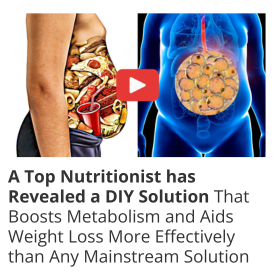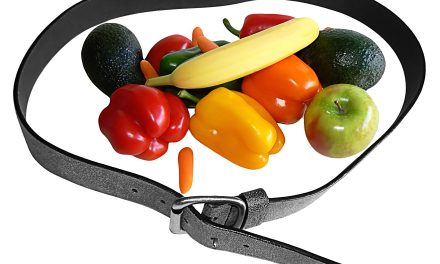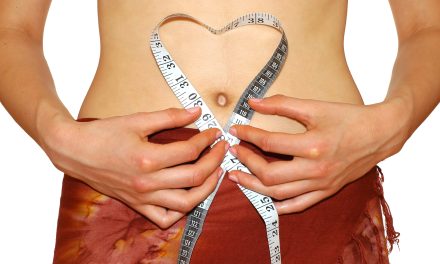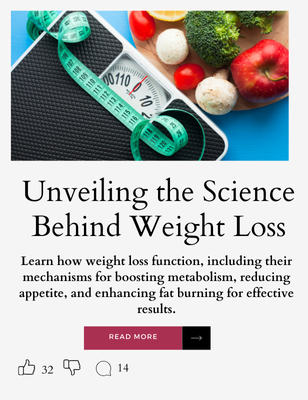Losing weight after pregnancy is a common goal for many new mothers, and the journey back to pre-pregnancy weight can be challenging. While diet and exercise are crucial components of weight loss, some mothers turn to supplements as an additional aid. It is important to approach postpartum weight loss with care, as the body needs time to recover from childbirth. The choice of weight loss supplements should be made with consideration for their safety, especially if the mother is breastfeeding.

There are a variety of supplements that claim to support weight loss, but it’s essential to focus on those that have a solid backing of scientific evidence and are deemed safe in the postpartum period. Nutritional supplements may help fill dietary gaps and support overall health, while certain vitamins and minerals can play roles in helping manage weight. Additionally, some herbal and natural supplements are popular for their potential fat loss benefits. However, it’s critical for new mothers to consult with healthcare providers before adding any supplements to their routine to ensure they do not interfere with postpartum recovery or breastfeeding.
Key considerations when selecting supplements include their efficacy in supporting weight loss, the potential impact on breastfeeding and the baby’s health, and the quality of the supplement. It’s equally important to pair supplementation with proper nutrition and physical activity to achieve sustainable weight loss after pregnancy.
Key Takeaways
- Supplements can be a helpful addition to diet and exercise for postpartum weight loss but must be chosen carefully.
- Safety and scientific evidence should guide supplement selection, particularly for breastfeeding mothers.
- Consulting healthcare providers is vital before starting any supplementation post-pregnancy.
Understanding Weight Loss After Pregnancy
After pregnancy, women’s bodies undergo a range of physiological changes to shed the excess weight gained during pregnancy. This weight loss is a gradual process as the body slowly returns to its pre-pregnancy state.
- Hormonal Adjustments: Hormones like estrogen and progesterone drop significantly after childbirth, impacting how the body stores and loses fat.
- Caloric Needs: Breastfeeding increases a woman’s caloric requirements, yet it also can help with weight loss as additional calories are burned to produce milk.
- Physical Activity: Incorporating light exercises after medical clearance can aid in weight loss, improving cardiovascular health and muscle tone.
| Consideration | Detail |
|---|---|
| Diet | A balanced diet is crucial. |
| Hydration | Water is essential for metabolism and milk production. |
| Sleep | Adequate rest supports weight loss. |
It is vital to approach weight loss after pregnancy with patience. Bodies may take up to a year or more to return to pre-pregnancy weight. Specialists typically recommend waiting until the postpartum checkup before starting any weight loss plan. The focus should always be on overall health and well-being rather than rapid weight loss.
Nutritional Supplements for Postpartum Weight Loss
Postpartum weight loss can be supported by certain supplements, provided they are used in conjunction with a healthy diet and exercise regimen. Consultation with a healthcare provider is essential before starting any supplement.
Fish Oil: Rich in omega-3 fatty acids, fish oil can help improve body composition. Studies show that omega-3s may aid in weight loss by increasing metabolism and fat burning.
Probiotics: These beneficial bacteria can enhance gut health, which is important for digestion and metabolism. Probiotics may contribute to weight reduction and the prevention of weight gain.
Protein Powders: A higher protein intake supports muscle maintenance during weight loss. Quality powders from whey or plant-based sources can help meet protein needs.
Iron: Many women are deficient in iron after childbirth, particularly if there was significant blood loss. Iron is vital for energy levels and proper metabolism, and thus can indirectly support weight loss.
Calcium and Vitamin D: These nutrients work in tandem to support bone health, which is crucial post-pregnancy. There is also evidence suggesting their role in maintaining a healthy body weight.
| Supplement | Purpose | Notes |
|---|---|---|
| Fish Oil | Enhances metabolism | Consult if breastfeeding |
| Probiotics | Supports gut health | Choose reputable brands |
| Protein Powder | Assists in muscle maintenance | Whey or plant-based |
| Iron | Energizes and boosts metabolism | Check for deficiencies |
| Calcium & Vitamin D | Strengthens bones | Monitor intake levels |
Be mindful that no supplement can replace a balanced diet and regular physical activity. Safety should be the top priority, particularly if breastfeeding.
Role of Vitamins and Minerals in Weight Management

Vitamins and minerals play a crucial role in weight management after pregnancy. They are essential for the proper functioning of the metabolism, which can support weight loss efforts postpartum.
B Vitamins such as B6, B12, and folate are integral in metabolizing fats, proteins, and carbohydrates. A sufficient intake ensures that the body can effectively convert food into energy rather than store it as fat.
- Vitamin D is often linked to body weight regulation. Research suggests that an adequate level of vitamin D may contribute to a decrease in fat accumulation and assist weight management.
Calcium and magnesium work in tandem not only to support bone health but also to aid in the regulation of the energy metabolism. These minerals might influence the body’s ability to balance blood sugar levels and manage weight.
Iron is vital for energy levels, particularly for new mothers who are at risk of anemia postpartum. Proper iron levels support the oxygenation of the blood, helping the metabolism function optimally.
- Chromium has been studied for its potential to enhance insulin activity and improve blood sugar control, which might help with cravings and thus, weight management.
Lastly, iodine is necessary for the thyroid gland’s synthesis of hormones, which regulate metabolic rate. A well-functioning thyroid is critical for maintaining a healthy weight.
While vitamins and minerals can aid with weight management, they should not be seen as a magic solution. A balanced diet and regular physical activity are also important for postpartum weight loss. Supplements should complement a healthy lifestyle, not replace it. Always consult with a healthcare provider before starting any new supplement regimen.
Herbal and Natural Supplements for Fat Loss

When focusing on fat loss after pregnancy, one might consider integrating herbal and natural supplements into their routine. It’s essential to consult a healthcare provider before starting any supplement regimen.
Green Tea Extract: A popular option, green tea extract is rich in antioxidants known as catechins, which can aid in enhancing metabolism and fat burning.
- Pros: May boost metabolic rate.
- Cons: Can cause jitteriness in caffeine-sensitive individuals.
Conjugated Linoleic Acid (CLA): Occurring naturally in dairy and meat, CLA supplements are believed to assist in fat loss by increasing fat breakdown and inhibiting fat production.
- Pros: Studies suggest modest fat loss over time.
- Cons: Some individuals may experience digestive side effects.
Fiber Supplements: Soluble fiber supplements, such as glucomannan, can create a feeling of fullness and assist in controlling appetite.
- Pros: Can aid in appetite suppression.
- Cons: Overuse can lead to gastrointestinal issues.
Omega-3 Fatty Acids: Typically sourced from fish oil, these supplements may not directly cause fat loss but can support overall health and complement fat loss efforts.
- Pros: Support cardiovascular health.
- Cons: Quality and source of omega-3s vary widely.
Probiotics: These supplements contain live bacteria that can improve gut health, which might be indirectly related to weight management.
- Pros: Can enhance digestive health.
- Cons: Efficacy may depend on specific bacterial strains.
It’s crucial for individuals to remember that supplements should accompany a balanced diet and exercise. They may provide an additional edge in losing post-pregnancy weight when used responsibly.
Probiotics and Weight Loss After Childbirth

Probiotics are live bacteria and yeasts beneficial for digestive health. After childbirth, women may find that integrating probiotics into their diet can support their weight loss goals. These beneficial microorganisms can be found in supplements and fermented foods.
Research Highlights:
- Gut Health Improvement: Probiotics can help balance the gut microbiota, which is often disrupted post-pregnancy.
- Enhanced Metabolism: There is some evidence suggesting probiotics may aid in improving metabolism, which can be conducive to weight loss.
The common probiotic strains associated with potential weight loss benefits include Lactobacillus and Bifidobacterium. They may influence body weight by affecting appetite control mechanisms and energy expenditure.
Suggested Probiotic Sources:
- Supplements: Verify that they contain clinically proven strains and CFU counts.
- Fermented Foods: Examples include yogurt, kefir, and sauerkraut.
Women considering probiotics for postpartum weight loss should consult with a healthcare provider to ensure these supplements are appropriate for their individual health needs, especially during breastfeeding. It is vital for new mothers to focus on a balanced diet and overall wellbeing rather than quick weight loss solutions.
| Potential Benefits | Considerations |
|---|---|
| Gut health restoration | Check supplement quality |
| Metabolic rate support | Consult healthcare provider |
| Appetite regulation | Prioritize balanced diet |
It should be noted that probiotics alone are unlikely to result in significant weight loss. They should be part of a holistic approach that includes a nutritious diet and regular physical activity.
Protein Supplements and Satiety

When considering weight loss after pregnancy, protein supplements can be an integral part of a diet. They play a crucial role in promoting satiety, which is the feeling of fullness after eating. A heightened sense of satiety can result in reduced calorie intake, supporting weight loss efforts.
Protein supplements, like whey or casein, have been shown to be effective in prolonging satiety. They increase levels of satiety hormones such as GLP-1 and PYY, and decrease ghrelin levels, which is known as the hunger hormone. Incorporating protein supplements in a balanced diet may therefore help postpartum individuals manage hunger and reduce overall calorie consumption.
It’s important to select a protein supplement that aligns with individual dietary preferences and needs. For lactose intolerant individuals, plant-based protein powders such as soy, pea, or rice protein may be more suitable. They provide the satiety benefits of protein without dairy-related digestive issues.
A practical approach is to integrate protein supplements into meals and snacks throughout the day. They can be added to smoothies, yogurts, or oatmeal, ensuring a consistent intake of protein that can help maintain fullness.
Consulting with a healthcare provider or nutritionist is recommended to determine the appropriate type of protein supplement and dosage. This guidance ensures that the supplement complements a balanced diet tailored for post-pregnancy weight loss.
- Key Takeaways:
- Protein supplements support satiety.
- They affect hunger hormones favorably.
- Variety accommodates different dietary needs.
- Consultation with professionals is advised for optimal results.
Safety Considerations for Postpartum Supplements

When considering supplements for weight loss after pregnancy, safety is paramount. It’s crucial to consult a healthcare provider before starting any supplement, as postpartum bodies have specific needs and limitations. Breastfeeding mothers need to be especially cautious because supplements can affect milk composition.
Key Points to Consider
- Consultation with a Doctor: Ensure to discuss any supplements with a healthcare professional to avoid any health risks to both mother and baby.
- Ingredients Check: Read labels carefully. Some ingredients found in weight loss supplements could be harmful postpartum or while breastfeeding.
- Quality and Certification: Opt for supplements that have been verified by third-party organizations for purity and quality assurance.
Important Reminders
- Breastfeeding Considerations: If breastfeeding, remember that anything ingested can be transferred to the baby through breast milk.
- Nutritional Replacement: Supplements should not replace a balanced diet. Focus on nutrients that support postpartum recovery.
- Hormonal Balance: The body’s hormones are already fluctuating postpartum. Avoid supplements that may further disrupt hormonal balance.
Side Effects and Interactions
- Be aware of the potential for side effects and interactions with other medications.
- Monitor for Adverse Reactions: If any unusual symptoms occur, stop using the supplement and contact a healthcare provider immediately.
A woman’s body goes through numerous changes after childbirth, and it’s necessary to prioritize safety when considering supplements for weight loss. The overarching goal should be to support the body’s natural healing process while maintaining overall health and wellbeing.
The Impact of Breastfeeding on Weight Loss

Breastfeeding can play a significant role in postpartum weight loss. When a mother breastfeeds, she utilizes fat cells stored during pregnancy along with calories from her diet to fuel milk production. This biological process helps with gradual weight reduction.
Caloric Burn: Breastfeeding mothers may burn approximately 500 extra calories per day, equivalent to many forms of moderate exercise.
Factors Influencing Weight Loss Through Breastfeeding:
- Frequency of Nursing: Frequent breastfeeding sessions increase caloric expenditure.
- Duration of Breastfeeding: Longer periods of breastfeeding have a more substantial impact on weight loss.
- Individual Metabolism: Metabolic rates vary from person to person, influencing the speed of weight loss.
The Human Body’s Response:
- Lactation and Hormones: The production of prolactin during lactation helps with utilizing body fat for milk synthesis.
- Appetite Regulation: Breastfeeding can affect the body’s hunger cues and appetite, sometimes leading to a natural reduction in food intake.
Breastfeeding may contribute to a gradual return to pre-pregnancy weight, but its effectiveness varies among individuals due to multiple influencing factors. It’s essential to maintain a balanced diet and consult with a healthcare provider before making significant dietary changes or beginning supplement intake.
Effective Exercise Alongside Supplementation

Weight loss after pregnancy can be supported by a regimen of safe, physician-approved exercises, which may be enhanced by dietary supplementation. It is crucial for new mothers to consult with healthcare providers before starting any weight loss program.
- Cardiovascular exercises: Brisk walking or swimming can aid in the gradual introduction of low-impact cardio, essential for caloric burn. Moderation is key to prevent overexertion.
- Strength training: The inclusion of resistance exercises twice a week strengthens muscles and promotes metabolism. Light weights and body-weight movements are advisable.
Complementing exercise with supplements like omega-3 fatty acids and protein powders might help meet nutritional needs during weight loss. However, these supplements should be secondary to a well-balanced diet.
- Omega-3 supplements, typically found in fish oil, can support heart health.
- Protein supplements assist in preserving muscle mass while managing weight.
| Supplement | Purpose | Recommended Usage |
|---|---|---|
| Omega-3 Fatty Acids | Support cardiovascular health | As directed by healthcare provider |
| Protein Powder | Preserve muscle during weight loss | Post-exercise or as meal replacement |
Incorporating these strategies can lead to effective post-pregnancy weight loss. Regular medical checks ensure the safe combination of exercise and supplementation tailored to individual postpartum recovery needs.
Developing a Weight Loss Plan Post-Pregnancy
After giving birth, many new mothers are eager to return to their pre-pregnancy weight. It’s important to approach this goal with a plan that is safe and effective. Consulting with a healthcare professional is the first step to ensure that any weight loss plan is appropriate considering the recent pregnancy and individual health status.
A balanced diet and regular physical activity are foundational to a post-pregnancy weight loss plan. Here’s a structured approach:
- Nutrition
- Focus on whole foods, such as fruits, vegetables, lean proteins, and whole grains.
- Implement portion control to avoid overeating.
- Stay hydrated by drinking plenty of water.
- Physical Activity
- Start with light exercises like walking or postpartum yoga.
- Gradually increase the intensity of workouts as recommended by a doctor.
- Rest
- Prioritize sleep as it aids in recovery and weight management.
- Supplements
- Consider supplements only after discussing with a healthcare provider.
- Supplements like omega-3 fatty acids, calcium, and vitamin D might support overall health.
- Support System
- Build a support system with family, friends, or a postnatal group.
Monitoring progress and adjusting the plan as needed are crucial. It may also be helpful to set realistic, incremental goals rather than focusing solely on the final target weight. Remember, weight loss should occur gradually and not interfere with postpartum recovery or breastfeeding, if applicable.
Frequently Asked Questions
The FAQs below discuss key considerations for postpartum women looking to supplement their weight loss safely, with an emphasis on compatibility with breastfeeding and metabolic support.
How can I safely accelerate my weight loss post-delivery?
One can safely accelerate weight loss after delivery by focusing on a balanced diet rich in nutrients, getting regular physical activity as approved by a healthcare provider, and potentially incorporating supplements like omega-3 fatty acids and probiotics, which have shown supportive benefits for weight management without harming lactation.
What are the most effective postnatal fat-burners compatible with breastfeeding?
Supplements like green tea extract and conjugated linoleic acid (CLA) may be considered effective for fat burning postnatally, but it’s vital to consult a healthcare provider before use to ensure they don’t interfere with breastfeeding.
Are there any weight loss pills safe to take while nursing?
Safety is paramount while nursing, and many weight loss pills are not recommended due to potential risks to the baby. Ingredients such as caffeine should be used cautiously. A healthcare provider can offer personalized advice on safe options, considering the baby’s health.
What supplements support metabolism and weight loss in postpartum women?
Supplements such as vitamin D, calcium, and certain fibers can support metabolism and assist with weight loss when paired with a healthy diet and exercise routine. Again, it’s important to discuss with a healthcare provider before starting any supplement regimen.
Which beverages are recommended for weight loss during the postpartum period?
Beverages like green tea, herbal teas, and water can aid in weight loss during the postpartum period. These beverages can help increase hydration and may boost metabolism, although they should be consumed in moderation to avoid excessive caffeine intake.
What should I consider when choosing weight loss medication after giving birth?
When choosing a weight loss medication after giving birth, one should consider the safety for nursing infants, the medication’s side effects, personal health conditions, and the advice of a healthcare professional. Non-stimulant options may be preferred to minimize potential effects on the baby.
Conclusion
In conclusion, there are several safe and effective supplements that can support post-pregnancy weight loss when used in conjunction with a healthy diet and exercise regimen. From multivitamins to omega-3 fatty acids and probiotics, these supplements can help replenish essential nutrients, aid in digestion, and support overall well-being during the postpartum period. However, it’s important for individuals to consult with healthcare professionals before incorporating any supplements into their post-pregnancy weight loss plan to ensure safety and effectiveness. With the right approach, these supplements can complement a healthy lifestyle and contribute to successful and sustainable weight loss after pregnancy.






















